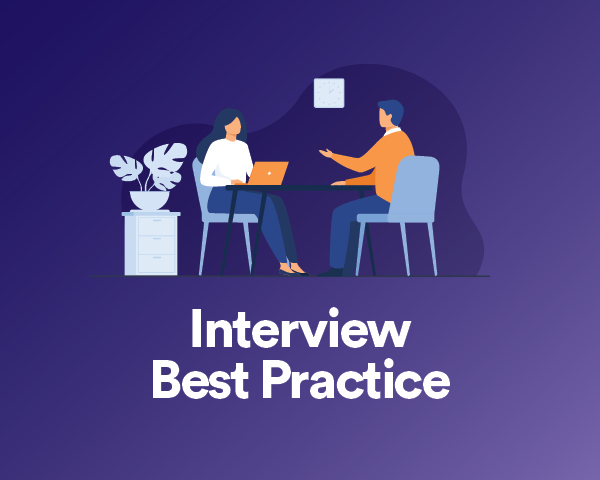Interview Best Practice

Women in Fintech – Amanda Sadler
May 22, 2023
The Importance of Candidate Experience
August 24, 2023
At CRS, we are always keen to support our clients with added value services alongside talent introduction. We are currently finding ‘best practice’ for interview process is a hot topic across our sectors and therefore wanted to share some insight into what we find works best…
1. Setting expectations throughout the interview process
Communication throughout an interview process is crucial in ensuring the best candidate journey and making the right hiring decision.
Sharing timelines, number of interviews and planned start date helps the candidate understand the process and stay engaged with the role. Often ‘ideal’ v ‘realistic’ is key when putting plans in place – it’s much better to give yourself a longer window than you might initially have thought, as being quicker is a better message to the market than slower!
This will be crucial as the summer holidays are fast approaching. Everyone expects a slightly longer process, with interview dates being sparce. To ensure you don’t lose top talent to another organisation it’s good to be transparent and set expectations at the start of the process so that candidates can manage their pipeline.
2. Ensure your interview process reflects company culture
An interview process is the first exposure a candidate has to the organisation and, as we all know, first impressions count! Now that we are all integrating back into an office (likely 2-3 days a week), working culture is key for candidates, ensuring they align with the company’s values and are going to enjoy the working environment.
Many of our clients have successfully introduced a ‘cultural stage’ within the interview process. This usually consists of meeting various stakeholders at different levels of seniority across different departments. This way the candidate leaves their interview with a well-rounded view of the business, which usually helps from a ‘buy-in’ perspective, as they immediately feel engaged with the business.
3. Role-appropriate interview process
Each role and department will need a slightly different interview process to ensure suitability for the role. . As the level of seniority increases, so does the number of stages. We would advise junior hires to have no more than a two-stage process.
Task-based second stage interviews are often valuable within Product, Marketing and Analyst type roles to test level of expertise. Candidates within these remits will expect this and often feel it’s a good way to show their suitability. It is important to provide candidates enough time to complete a task, as they will often be balancing interviews with their full time role and will want to put their best foot forward.
4. Commitment to the hire
Often it’s a catch-22 when recruiting. You need to make the hire to alleviate some of your work pressure, but the workload makes it difficult to find time to recruit.
Blocking out the diary ahead of time is a definite advantage. It saves last minute interview slots, stops meetings running over and ultimately reduces the risk of last minute cancellations which never helps with market perception!
Our markets are all very tight-knit and word spreads quickly, therefore being on time, booking in slots promptly and preparing for each candidate helps to build a positive employer brand and will make future recruitment easier.
There are many different aspects which play a part in creating a successful interview process. If you would like to talk further on any of the above points please reach out.
For more information email kprince@crsltd.info
